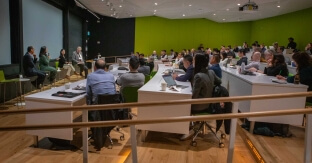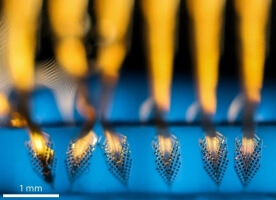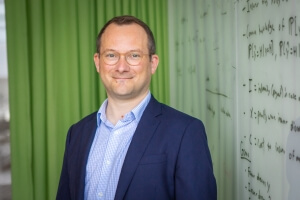Search Results
Office for Belonging, Engagement, and Community - Three Minute Thesis Finalists
Allaire Doussan Dartmouth College Bioimpedance can detect cancer intraoperatively in real time Nhan Tran Cornell University

Special MRSEC Seminar: Design and Synthesis of Nanomaterials and Nanosystems for Biomedical and Sustainability Applications
Nanostructured materials can be designed with sophisticated features to fulfill the complex requirements of advanced material applications. Our laboratory has developed organic and inorganic nanoparticles and nanocomposites for advanced drug delivery, antimicrobial, stem cell culture, and tissue engineering applications. In addition, we have nanofabricated microfluidic systems for drug screening, in vitro toxicology, and diagnostic applications.
Dr. Jackie Y. Ying
to
Pierce Hall 209

Texas: From Carbon Emitter to Green Hydrogen Exporter - A Promising Sustainable Future
A Harvard-China Project Research Seminar with Haiyang Lin, Harvard-China Project Postdoctoral Fellow
Haiyang Lin, Harvard-China Project Postdoctoral Fellow
to
Pierce Hall 100F

Are Electric Vehicles Driving Sustainability? Unpacking the Environmental Trade-Off of the EV Revolution
The 2025 Dean’s Dialogue Panel will explore the sustainability of electric vehicles (EVs) by discussing their environmental costs and benefits. Across the world, policymakers and car manufacturers are championing EVs as a critical solution to reducing oil consumption and combating climate change. But are EVs truly as eco-friendly as they claim to be? This panel will delve into the complex realities of EV sustainability, examining the environmental impacts of electricity production, the extraction of raw materials, and the recyclability of EV components.
to
Science and Engineering Complex (SEC) LL2.224

PAI Seminar: Learning Decision-Focused Uncertainty Representations: Theory & Applications in Sustainability
Machine learning can significantly improve performance for decision-making under uncertainty
in a wide range of domains. However, ensuring robustness guarantees and satisfaction of risk
constraints requires well-calibrated uncertainty estimates, yet there may be many valid
uncertainty estimates, each with their own performance profile—i.e., not all uncertainty is
equally valuable for downstream decision-making. To address this problem, we developed an
end-to-end framework to learn uncertainty representations for stochastic, robust, and
Christopher Yeh
to
Science and Engineering Complex (SEC) SEC 4.405
Active Learning Labs - UTEC - Harvard Collaborative Field Program in Peru
Dates: January 6 - January 17, 2025 Students from Harvard and Universidad de Ingeniería y Tecnología (UTEC) will spend 2 weeks in Iquitos and Lima, Peru working on a sustainable development problem considering various design solutions to a challenge facing an indigenous Am...

Coral Reefs and Super Black Animals: Lessons in Sustainability from Nature’s Photonic Experts
Solar energy shapes climate and life on a planetary scale. Coral reefs, essential ecosystems, depend on photosynthetic symbioses between animals and algae. However, climate change has devastated reefs worldwide. I unite materials science, computational analysis, and environmental science to research coral reef resilience and inspire new sustainable technologies based on nature’s materials.
Dakota McCoy (Stanford University)
to
Pierce Hall 209

Energy-Efficient and Environmentally Sustainable Computing Systems Leveraging Three-Dimensional Integrated Circuits
Friday, February 7
11am - 12pm
SEC LL2.221
"Energy-Efficient and Environmentally Sustainable Computing Systems Leveraging Three-Dimensional Integrated Circuits"
Gage Hills, Harvard University
Abstract:
Gage Hills
to
Science and Engineering Complex (SEC) LL2.221
Allston
Harvard owns more land in Boston than in Cambridge, and the University’s footprint in the Allston neighborhood has rapidly expanded. SEAS is the primary occupant of the 500,000+ square foot Science and Engineering Complex (SEC). The SEC houses Bioengineering, Computer Science, Data Science, and Comp...








